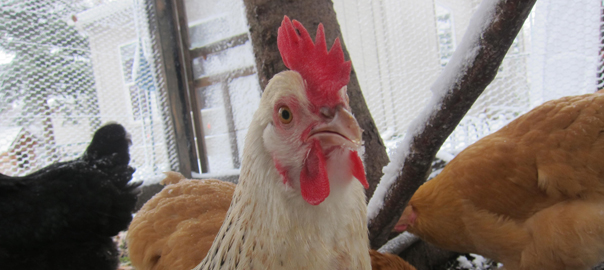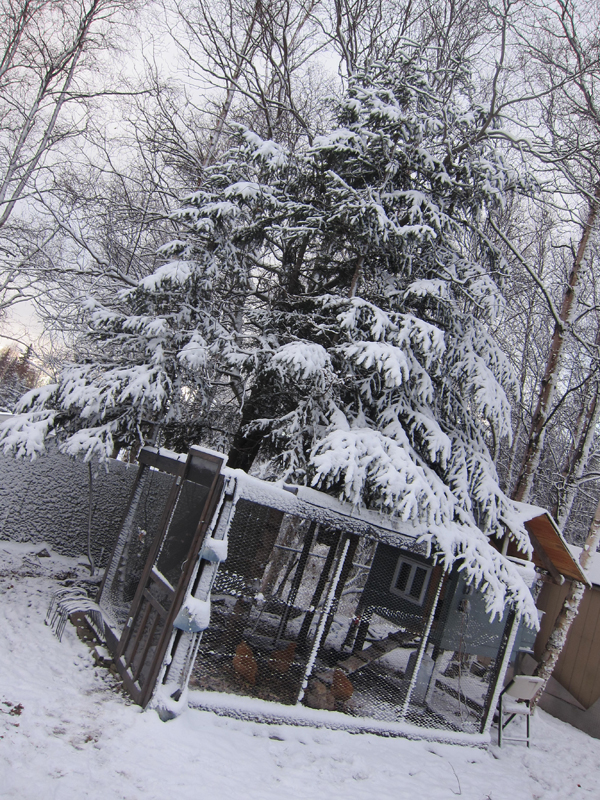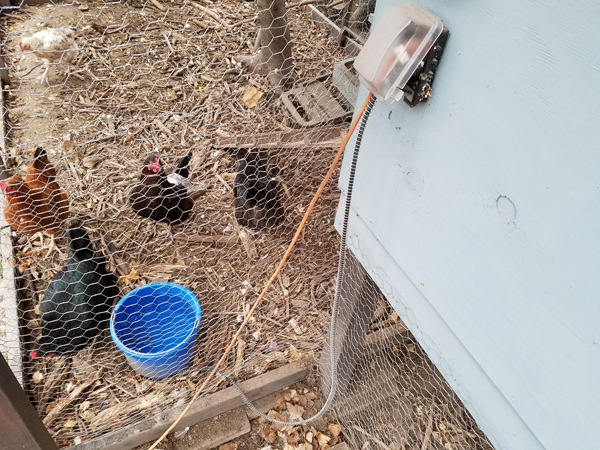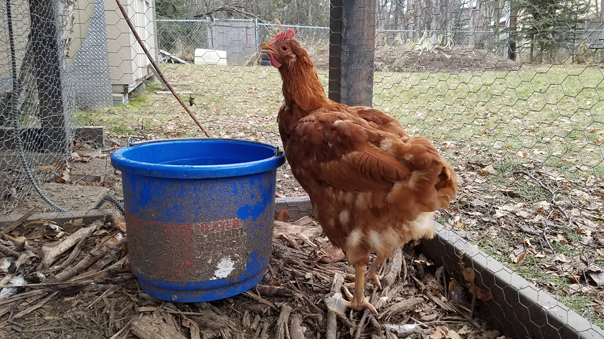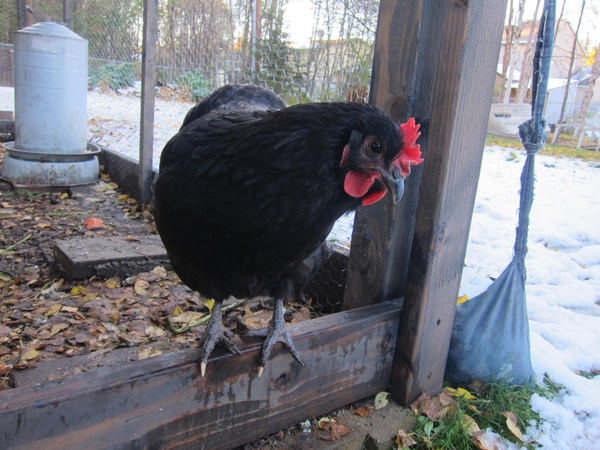Wintertime chicken keeping might seem intimidating, but it’s actually surprisingly easy once you get the swing of it.
It’s helpful to keep in mind that chickens are birds, and there are plenty of birds that thrive in the snowy, winter woods. After all, they’ve got nice, fluffy full-body down coats to keep themselves warm.
When snow starts falling and temperatures in your area are close to freezing at night, there are a few simple preps you’ll want to do to help your hens survive the winter while staying warm and happy.
Prevent their water from freezing
Arguably the most important part of winter chicken care is having a solution to keep your chickens hydrated. When temperatures start to freeze for the winter, you’ll need to figure out how to keep your chicken water container thawed so they always have access to fresh water.
There are lots of different brands and styles of heated waterers. Some waterers are tall and lean, others are short and wide. Some only have a small opening in the bottom and work by a gravity feed system. Whatever your needs are, if you’re willing to look around, you can find a solution that fits your space and needs.
My coop has a 3-gallon heated container that’s actually marketed as a dog water bucket, but it works great for my chickens.
This particular type of electric water bucket plugs into an outlet and only turns on when the temperature gets cold enough to warrant it.
All of my chickens are standard sized breeds (not the tiny “banty” breeds), so this size works really well for my hens. It’s the perfect height and with my flock of nine chickens, it generally lasts 2-3 days before I need to refill it. Perfect timing for a quick weekend trip.
If you don’t want to buy an electric waterer with a built-in heater, you’ll need to be prepared to go out to the coop a few times a day to bring the flock fresh, thawed water.
Preventing a drafty coop
You’d be amazed by how much body heat chickens produce!
You want to give them a big enough coop so they all fit on the roost together to sleep, but small enough so their body heat can effectively still warm the space.
Chickens do great over the winter, so long as you make sure their coop doesn’t expose them to cold drafts. Chickens are like little space heaters. As long as their home doesn’t have too much windy air flow or drafts, their body heat alone can quickly increase the coop temperature at night just by snuggling up.
They can take care of creating their own heat, as long as you make sure they have a safe, enclosed space. Many chicken owners insulate their coops to help keep heat in, but some chicken owners don’t use insulation.
Some backyard chicken owners also heat their coops in the winter, but many chicken owners don’t. (Personally, I don’t heat my coop – I’ve heard too many stories about coops catching on fire because a chicken got startled and knocked over the heat lamp.)
In this video (click here to watch on YouTube), I’ll give you a brief tour of my chicken coop so you can see where my hens sleep at night and roost – even during frigid winter conditions.
Be prepared for decreased eggs
When wintertime comes around, daylight hours quickly decrease. And when daylight hours decrease, chickens don’t lay eggs as often.
Hens actually have a light sensor in their eye, and when they’re getting less than 12-14 hours of light a day, their body slows (or even completely stops) laying eggs.
Some people don’t mind getting fewer eggs over the winter, because it gives their flock a chance to rest. Hey, if you laid an egg every day, you might want a break, too!
But if you own chickens purely for eggs, it makes sense to forgo giving the flock a break and keep egg production up. Supplementing daylight with an artificial light source will do just the trick to keep your ladies laying eggs throughout the winter.
It doesn’t need to be anything fancy or expensive – I’ve seen some chicken owners hang strings of Christmas lights inside their coop. It looks beautiful and works well to keep your hens laying.
If it’s your first winter owning chickens, it might feel stressful when you look at the thermometer and see the outdoor forecast dropping.
But just remember that chickens don’t mind the cold as much as you do. And as long as you give them a reliable source of food and water, a little space to take their dirt baths, and a draft-free place to escape to at night and on extra cold days, they’ll do just fine.
Caring for chickens over the winter isn’t hard – you just need to pay attention to your flock’s basic needs. :)
